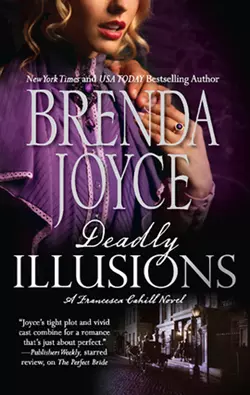Deadly Illusions

Бренда Джойс
Тип: электронная книга
Жанр: Современная зарубежная литература
Язык: на английском языке
Стоимость: 150.68 ₽
Статус: В продаже
Издательство: HarperCollins
Дата публикации: 16.04.2024
Отзывы: Пока нет Добавить отзыв
О книге: Irrepressible heiress and intrepid sleuth Francesca Cahill moves from her own glittering world of Fifth Avenue to the teeming underbelly of society, a place of pride, passions and sometimes deadly perversion.Despite the misgivings of her fiance, Calder Hart, Francesca cannot turn away from a threat that is terrorizing the tenement neighborhood of Lower Manhattan. A madman has attacked three women, but while the first two victims survived, the third is found dead. All the victims are impoverished but beautiful Irishwomen – and Francesca fears that her dear friends Maggie Kennedy and Gwen O′Neil could be next.Soon she is working with her former love, police commissioner Rick Bragg – Calder′s half brother and worst rival. But even as Calder′s jealous passions leave his relationship with Francesca teetering on the brink, Francesca is frantically on the killer′s trail, certain the Slasher will strike again, afraid she will be too late.